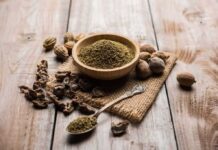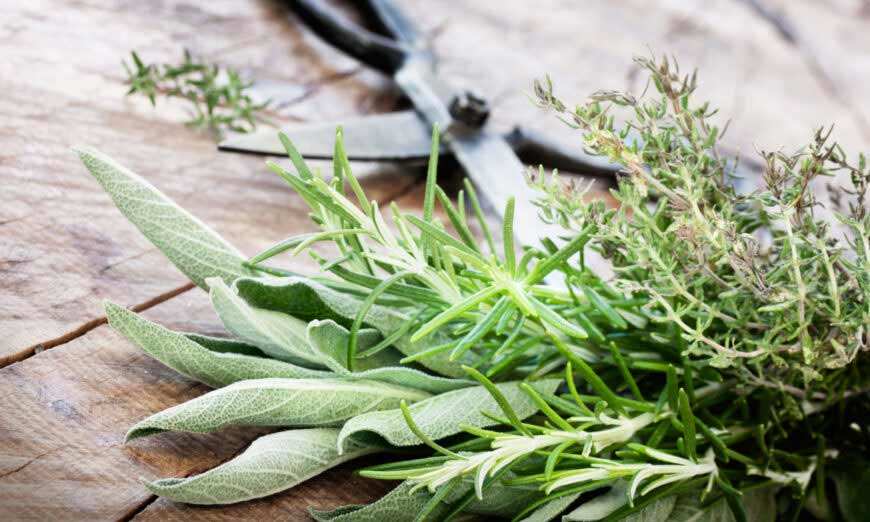
Rosemary, peppermint, and sage have demonstrated brain-boosting effects in scientific studies.
Our human brains are amazing. This complex organ is our command center. The function of our cognitive, sensory, social, emotional, behavioral, and learned skills relies on our brain health.
White matter, grey matter, blood vessels, and nerves—the human brain is about 60 percent fat. The remaining 40 percent is a combination of water, protein, carbohydrates, and salts. Our brain weighs in at about 3 pounds, with an incredible 86 billion neurons. Our neurons, or nerve cells, communicate constantly with each other by releasing chemical messengers called neurotransmitters.
And, through a process known as neurogenesis, our incredibly adaptive brains can grow new brain cells. Our ability to change our minds extends well past midlife. We can learn new things, acquire new skills, and recover from brain injury throughout our lives.
The concept of neuroplasticity describes the brain’s capacity to rebuild and remodel itself. Through new experiences, new information, or even injury, our brains can regenerate and strengthen neuronal connections.
Happy Healthy Hippocampus
The part of the human brain responsible for our ability to learn and remember is called the hippocampus. On each side, deep in the center of our brain, are two thumb-sized, seahorse-shaped structures, known as the hippocampi. New studies show that this area of the brain has the unique capacity to generate new neurons. Incredibly, there are 700 new brain cells in the hippocampus every day!
New neurons need a great deal of support to survive, grow, and be active. Fortunately, there are a few ways to help them grow taller, larger, and stronger to become mature.
Grow Your Hippocampus
A Harvard- and Johns Hopkins-trained neurologist and neuroscientist, Dr. Majid Fotuhi, recommends the following in his article, Can you grow your hippocampus? Yes. Here’s how, and why it matters, published in SharpBrains, on Nov. 4, 2015:
Exercise is the best way to generate new hippocampal neurons. Studies show walking just 1 mile a day lowers the risk of Alzheimer’s disease by 48 percent.
Nutrition can help nourish hippocampal neurons. Omega-3 fatty acids are the building blocks of neurons. Eating a Mediterranean diet that includes olive oil, salmon, nuts, and other food high in omega-3 fatty acids can help. Higher blood levels of these important fatty acids are associated with larger hippocampus size, better memory, and a much lower risk of developing Alzheimer’s disease.
Plenty of oxygen is another way you can grow your hippocampus. Exercise can increase oxygen in the blood. Also, treatment of sleep apnea, such as using a CPAP machine contributes to higher oxygen levels.
A molecule called brain-derived neurotrophic factor (BDNF) is a key molecule involved in plastic changes related to learning and memory.
Stimulation through learning a new language, a new instrument, or challenging one’s brain by learning new facts can grow hippocampi neurons.
Stress reduction and meditation have been shown to substantially expand the volume of the hippocampus.
Neuroplasticity Through Natural Neuroprotection
Imagine if natural substances found in herbs, fruits, nuts, and vegetables could help maintain memory and cognitive function, enhance performance, and maximize mental endurance. What if just inhaling an aromatic essential oil or sipping a fragrant herbal tea could improve memory and cognitive function? The phytochemistry and pharmacological potential in the world’s incredible 250,000 different plants are continuously being explored.
Perhaps the use of aromatic herbs, such as rosemary, sage, and mint, in the Mediterranean diet may be a reason that it contributes to better brain health.
The neuro-pharmacological activities of natural plant products have been documented in recent and historical evidence. The various biological properties include antioxidant activity, inhibition of inflammatory processes, and up-regulation of various cell survival proteins.
Various phytoconstituents may potentially suppress neurodegeneration and improve memory as well as the cognitive functions of the brain. There’s further evidence that they play a pivotal role in the prevention and cure of different neurodegenerative diseases, such as Alzheimer’s, epilepsy, Parkinson’s, and other neuronal disorders.
A thorough study of research knowledge from available literature, Neuroprotective Strategies for Neurological Disorders by Natural Products summarizes the potential neurotherapeutic applications of natural products. Published in Current Neuropharmacology, the review authors wrote that “plants are the best source for the isolation of secondary metabolites demonstrating significant structural diversity and offer a wide range of new and exciting pharmacophores.”
They also noted that “extensive research on identification and discovery of novel neuroprotective drugs has shown that plant extracts and their bioactive compounds together with nutraceuticals can have tremendous potential as neuroprotective candidates against several types of neurodegenerative disorders.”
In reviewing and analyzing the information, the study states: “For the betterment of human health, a limitless source of molecules is present in nature in the form of herbs, spices, and foods. Phytochemicals from plants are known to exert additive, synergistic or antagonistic effects on the body.”
Here, we capture just three herbs, rosemary, peppermint, and sage. We discuss how they help to improve memory and cognitive function. But, as noted above, plants with phytochemical molecules that may benefit brain health could be nearly limitless. These are just a few that are known to have neuroprotective bioactive compounds.
Plant-Based Medicines to Support Memory, Cognitive Function
Rosemary (Rosmarinus officinalis)
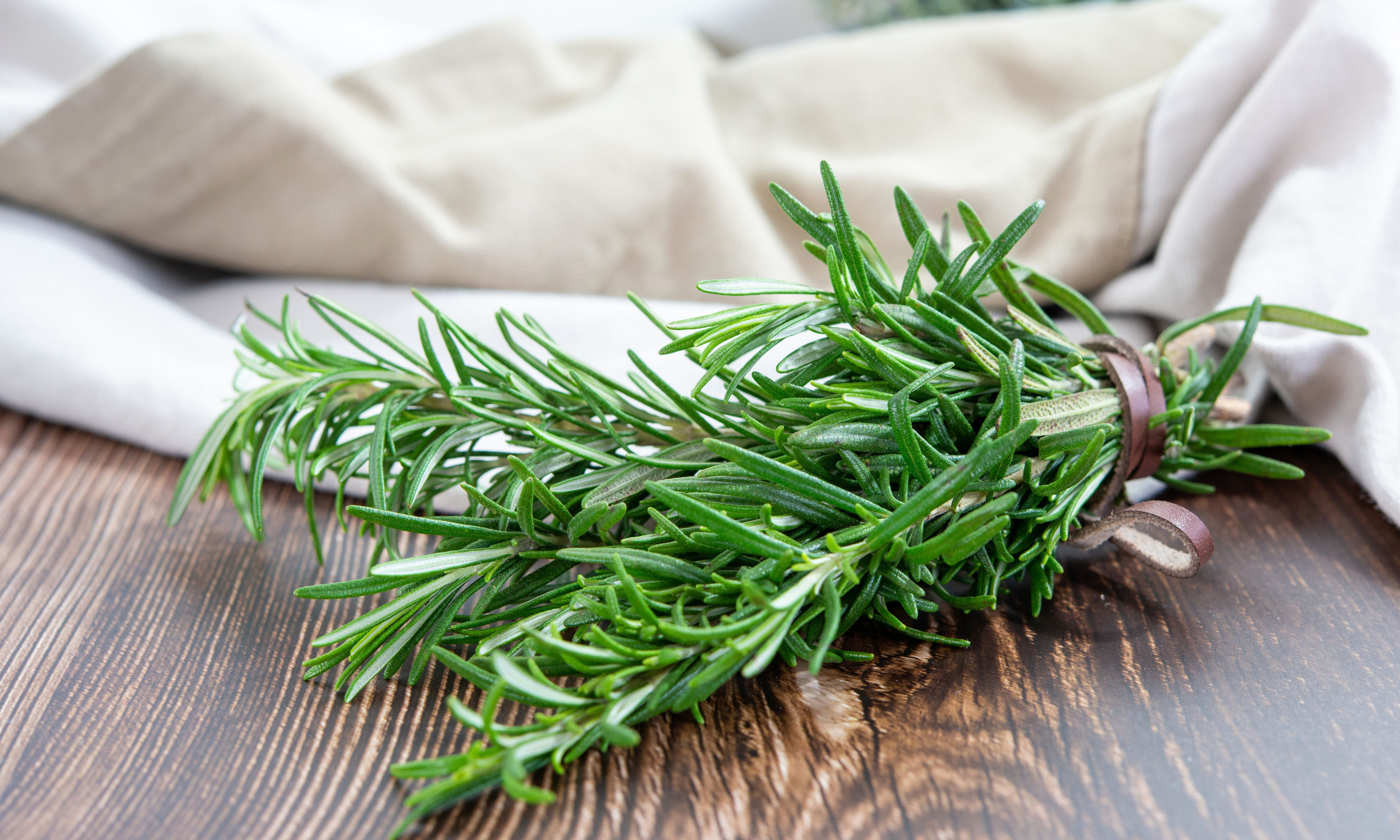
Rosemary is a widely available Mediterranean herb known for its earthy, woodsy aroma. It grows wild on the sandy slopes overlooking the Mediterranean Sea. Surprisingly thirsty, rosemary can be grown in the home herb, vegetable, or flower garden with some varieties being hardy even in Zone 5. It makes a tidy, manageable, and fragrant hedge plant. Rosemary does very well in containers and can even be grown indoors.
The needle-like leaves are deliciously fragrant and can be harvested at any time of year. They can be used fresh as a culinary herb or in tea. Rosemary tea has a long history in traditional medicines with many health benefits, including enhancing memory and mood. It pairs nicely with other flavors, including lemon. The leaves also dry and freeze nicely for future use.
Rosemary infuses well into many substances. Water is normally used for tea, but you can also try rosemary-infused oil. Any of your favorite salad oils, such as olive, avocado, or sunflower, take on inspiring aromas and are great for use in cooking or drizzling on your favorite foods. Infusing rosemary into vinegar also extracts many of the healthful benefits of rosemary’s bioactive compounds.
Available through most high-quality essential oil brands, rosemary essential oil is a convenient way to obtain the powerful, brain-boosting aromas of rosemary.
Rosemary Constituents and Healing Activity
A notable constituent of the rosemary herb is carnosic acid. It’s noted for its neuroprotective electrophilic compound, which can cross the blood-brain barrier and protect the brain against ischemia/reperfusion brain injury.
A collection of studies published in Neuroprotective Potential of Aromatic Herbs show several positive effects of rosemary on memory and cognitive function.
One study on the ingestion of rosemary water shows its positive impacts on the improvement of mental activity.
A 2020 aromatherapy research study of 39 adults that were given rosemary-lemon and lavender oil to smell for a week shows that aromatherapy has a positive effect on cognitive functions in the elderly. It also reduced the feeling of drowsiness during the day. Therefore, rosemary lemon oil is effective in controlling the quality of sleep and can improve cognitive disorders by controlling memory and calming their effect on the sympathetic nerves.
Results from an in-depth 2020 animal study show improvement in motor, learning, anxiety, and spatial memory with rosmarinic acid injections in rats with cognition deficits due to hypoxic injury.
A 2016 study shows that rosemary extract treatment in the repetitive mild traumatic brain injury of rats improved cognitive deficits through decreased neuronal degeneration.
Several other studies, including this one, show the positive effects of taking rosemary extract for improved cognitive function.
It was observed that Rosmarinus officinalis and its active components could inhibit neurotoxicity, and the results of this study show the protective effects of rosmarinic acid in reversing deficits in spatial and recognition memory.
Peppermint (Mentha x piperita)
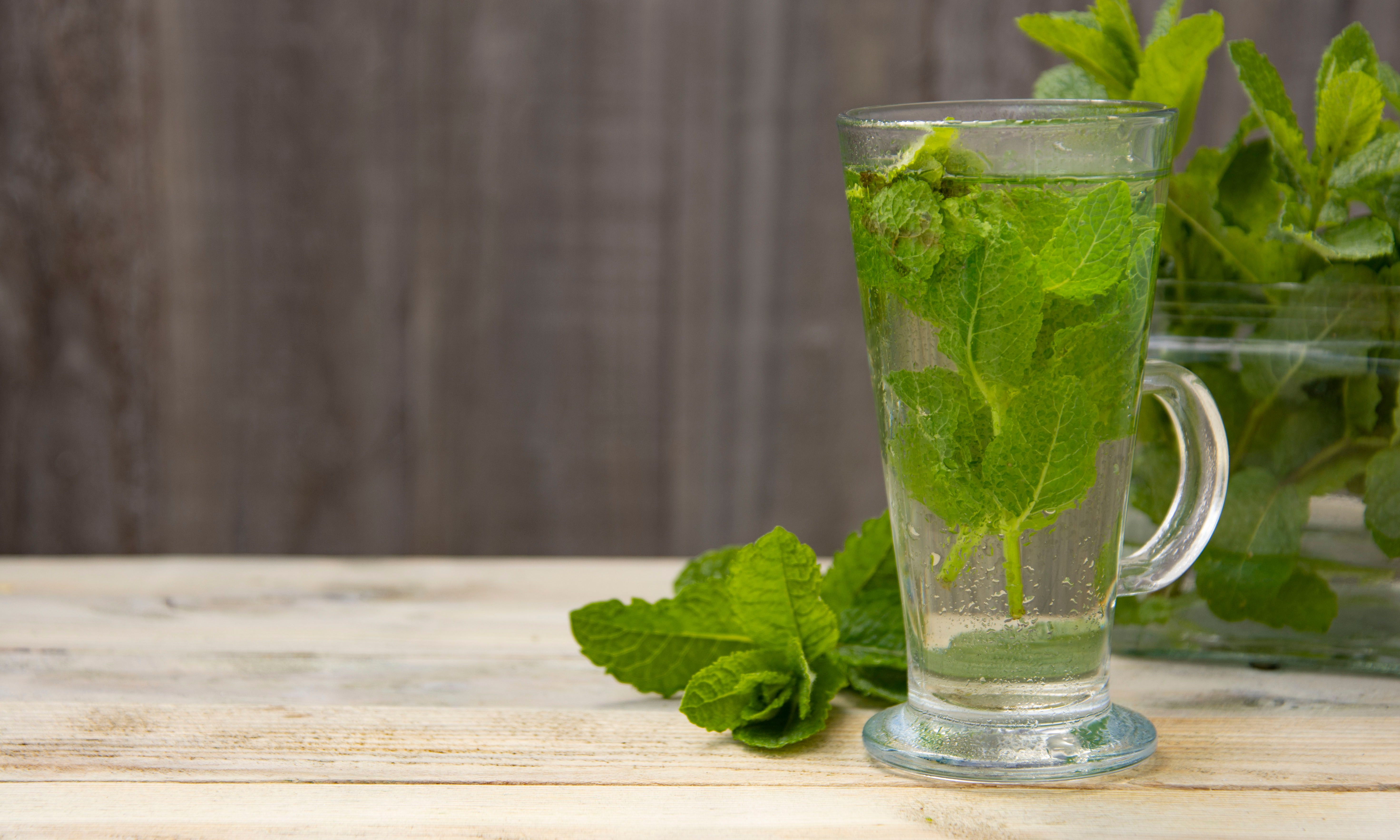
Candy canes, peppermint bark, and peppermint schnapps each entice with their delightful refreshing herbal scent. A favorite evening herbal tea that soothes the digestive tract, peppermint is also well known for its soothing effect on headaches.
Peppermint grows in zones 3–8 and is a perennial that grows somewhat aggressively via underground stolons. Terminal flower spikes are adored by bees and butterflies. It’s the oblong-pointed serrated leaves that hold the fragrance and medicinal virtues. Peppermint thrives in full sun to partial shade in moist rich soils. To harvest, simply cut back peppermint plants before the flowers form in early summer. The leaves can be used fresh, frozen, or dried. They pair beautifully with many other flavors, such as lemon, ginger, and honey, and the aroma blends perfectly with rosemary and sage.
Peppermint Constituents and Healing Activity
The various constituents in peppermint are menthol, menthone, neomenthol, and iso-menthone. These volatile metabolites are the components of peppermint essential oil. These bioactive compounds share anti-inflammatory, antibacterial, immunomodulatory, neuroprotective, antifatigue, and antioxidant activities. There’s mounting evidence that peppermint essential oil has pharmacological effects that protect many body systems, especially the brain and nervous systems.
Sage (Salvia officinalis)
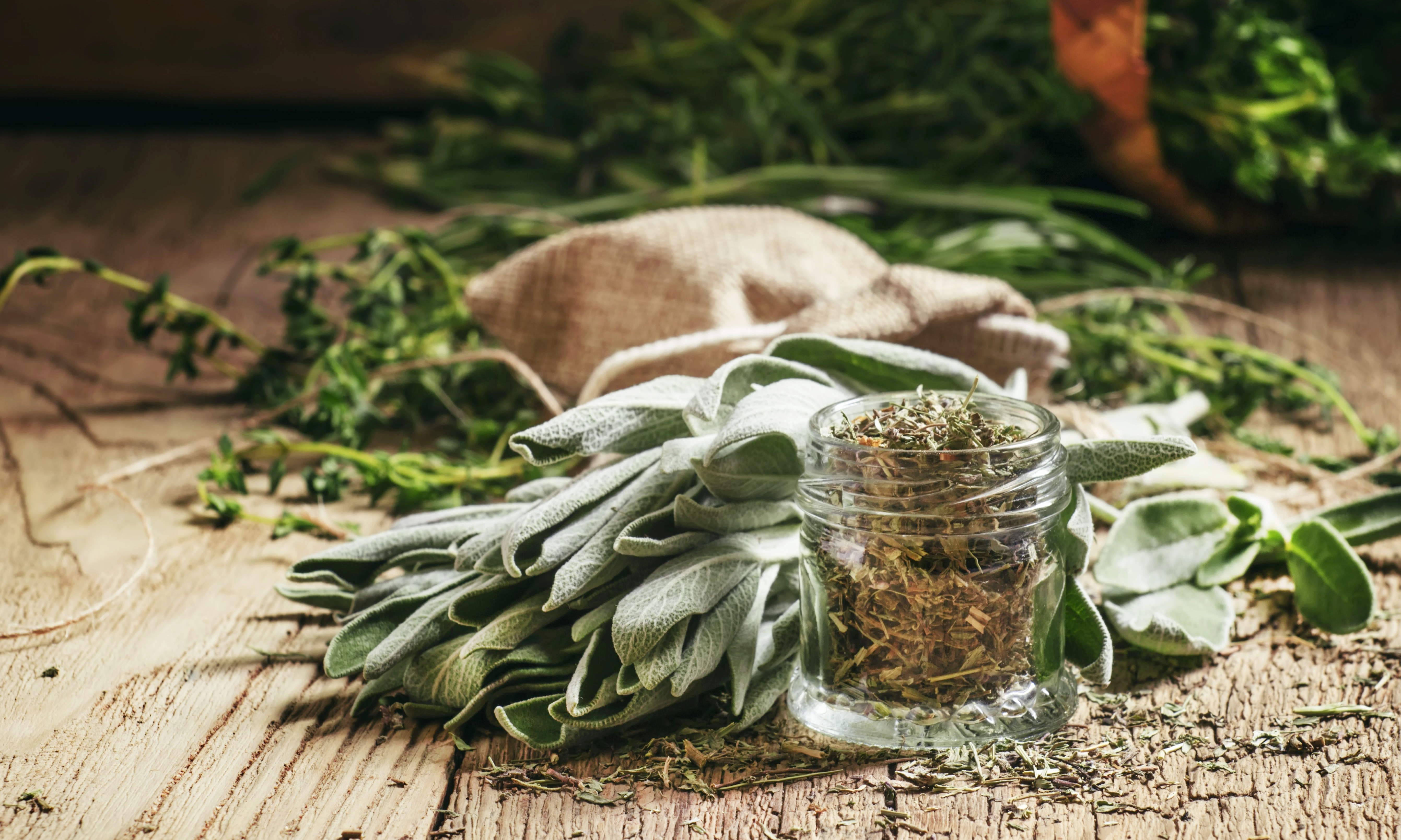
The distinctive bold peppery flavor of sage carries more than its weight as a culinary herb. The strong leaves are gorgeous to use fresh and hold their structure even under high temperatures. This makes them a great partner in sauces and stuffings.
Hardy in Zones 4–11, culinary sage is a slow-growing herb with strong but soft velvety leaves. Harvest young, plump, undamaged leaves for fresh use. Sage leaves infuse nicely into oils and vinegar. Sage also infuses beautifully in honey and pairs extraordinarily well with ginger.
Sage tea has a long-standing traditional use as a brain-enhancing tonic. Try a couple of sliced sage leaves, some thin slices of ginger, and a lemon wedge steeped in two to three cups of water for an invigorating tea.
Sage essential oil, prepackaged sage tea, and sage supplements are simple ways to benefit from this health-promoting herb.
Sage Constituents and Healing Activity
As a tea, a culinary herb, and traditional medicine, sage acts as a brain-enhancing tonic. Sage extracts have both cognitive and memory-enhancing outcomes. In a study published International Journal of Molecular Sciences, the evaluation of culinary sage extracts led to the discovery of benzyl 6-O-beta-D-apiofuranosyl-beta-D-glucoside (B6AG). B6AG was shown to upregulate neurotrophic factors in C6 glioma cells with upregulation of BDNF.
A research review, Neuroprotective Potential of Aromatic Herbs, examined the effect of sage on cognitive deficits revealed by several previous studies. Salvia officinalis extract showed a considerably better effect on cognitive functions compared to a placebo. A study of 36 healthy subjects receiving oral sage extract resulted in improvement in secondary memory performance, decreased mental fatigue, and elevated alertness. Another study shows marked improvement following the consumption of sage extract in cognitive performance and short-term memory in healthy young adults. The cholinesterase-inhibiting effects of sage showed improvement in cognitive performance, mood, and anxiety state in yet another study of 30 healthy young individuals.
Aromatherapy Recipe to Improve Memory, Cognitive Function
Our sense of smell, managed by an area in the brain known as our olfactory bulb, is directly connected to our amygdala and hippocampus. This direct route is the reason that scent has a targeted effect on our memory and emotion. The use of aromatherapy may harness the brain-enhancing beneficial effects of aromatic herbs, such as rosemary, peppermint, and sage.
Try this aromatherapy recipe with other uses of these herbs in your culinary adventures, extracts, and herbal teas.
For this recipe, acquire an aromatherapy diffuser of your choice and follow the product’s directions.
Acquire high-quality essential oils from your favorite essential oil brand.
Use three to five drops each of rosemary, peppermint, and sage essential oils in the diffuser. Use a diffuser during your morning routine, at your desk, or throughout your workday. Enjoy stimulating memory and cognitive function enhancement.
Be considerate of others and of pets who may be sensitive to the strong odors of essential oils.
Important Notice: This article was originally published at www.theepochtimes.com by Sherra Vorley where all credits are due.
Disclaimer
The watching, interacting, and participation of any kind with anything on this page does not constitute or initiate a doctor-patient relationship with Dr. Farrah™. None of the statements here have been evaluated by the Food and Drug Administration (FDA). The products of Dr. Farrah™ are not intended to diagnose, treat, cure, or prevent any disease. The information being provided should only be considered for education and entertainment purposes only. If you feel that anything you see or hear may be of value to you on this page or on any other medium of any kind associated with, showing, or quoting anything relating to Dr. Farrah™ in any way at any time, you are encouraged to and agree to consult with a licensed healthcare professional in your area to discuss it. If you feel that you’re having a healthcare emergency, seek medical attention immediately. The views expressed here are simply either the views and opinions of Dr. Farrah™ or others appearing and are protected under the first amendment.
Dr. Farrah™ is a highly experienced Licensed Medical Doctor certified in evidence-based clinical nutrition, not some enthusiast, formulator, or medium promoting the wild and unrestrained use of nutrition products for health issues without clinical experience and scientific evidence of therapeutic benefit. Dr. Farrah™ has personally and keenly studied everything she recommends, and more importantly, she’s closely observed the reactions and results in a clinical setting countless times over the course of her career involving the treatment of over 150,000 patients.
Dr. Farrah™ promotes evidence-based natural approaches to health, which means integrating her individual scientific and clinical expertise with the best available external clinical evidence from systematic research. By individual clinical expertise, I refer to the proficiency and judgment that individual clinicians acquire through clinical experience and clinical practice.
Dr. Farrah™ does not make any representation or warranties with respect to the accuracy, applicability, fitness, or completeness of any multimedia content provided. Dr. Farrah™ does not warrant the performance, effectiveness, or applicability of any sites listed, linked, or referenced to, in, or by any multimedia content.
To be clear, the multimedia content is not intended to be a substitute for professional medical advice, diagnosis, or treatment. Always seek the advice of your physician or other qualified health providers with any questions you may have regarding a medical condition. Never disregard professional medical advice or delay in seeking it because of something you have read or seen in any website, video, image, or media of any kind. Dr. Farrah™ hereby disclaims any and all liability to any party for any direct, indirect, implied, punitive, special, incidental, or other consequential damages arising directly or indirectly from any use of the content, which is provided as is, and without warranties.



